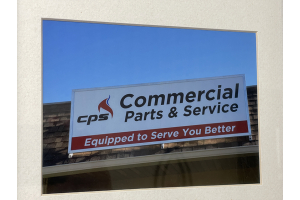6 Most Common Grill Problems and Their Fixes

High performance grills are an essential part of most commercial kitchens. As one of the main appliances that help cook a variety of dishes in the food service industry, it’s important to invest in a grill that can make it through even the toughest kitchen challenges. Although high quality grills are known for their durability and consistency, it is not uncommon to experience a minor malfunction. Luckily, these six common grill problems usually have simple solutions that don’t require major repairs or expensive replacements. By following a set of fundamental troubleshooting tips, you will get your trusty grill up and running in no time.
Problem #1: The Grill Won’t Turn On.
Whether your grill has a push-start igniter or is battery powered, there might come a time when your grill isn’t turning on or heating up like it used to. A grill that is battery operated sometimes needs a simple battery replacement. However, those with push-start igniters that won’t generate an initial spark could either mean that the igniter is clogged, it has a faulty button, or it needs a wiring repair. If it’s just a clog, you can easily find the affected igniter by removing the cooking grates to inspect the burners and clean them if needed. If it seems that the problem is button or wiring related, then you might need to contact a service technician to get these parts replaced.
Problem #2: The Flame Won’t Stay Lit.
If your grill is turning on but the flames repeatedly extinguish, it could be caused from one of three common issues. First check and make sure that the grill is preheated properly and ready for a flame. Then, ensure that the tubes that connect the burner to the control valve are positioned directly over the valve orifice. Finally, make sure those tubes are clean, clear, and free of blockage. If the flame still remains in its stubborn ways, the igniter itself might need repaired or replaced by a service technician.
Problem #3: The Grill Produces Black Smoke.
When your grill is producing a massive amount of smoke, especially black smoke, this usually means that it’s time for a cleaning. Excessive build-up of grease on your grill will not only smoke out your kitchen, but it can also create a toxic black coating on your food. If black smoke is what’s holding back your grilling efforts, give it a good cleaning beforehand then preheat the grill for 15 minutes. This will help burn off any unwanted residue from previous use. If you are still seeing that ugly black smoke after cleaning, check and clean the venturi tubes and air shutters to make sure that it is producing a proper gas-to-air mixture.
Problem #4: The Grill Is Making Strange Noises.
It’s common to hear a strange humming noise come from your grill. This sound is usually a result of environmental factors, such as air temperature, pressure or humidity. Sometimes humming noises can even mean that the gas tank is low or too full. If you are noticing that your grill is making unusual sounds, it’s important to first check your grill for any leaks. If the grill is leak-free, it could just mean that an air bubble is trapped in the gas hose. Your owner’s manual will most likely contain instructions on how to purge the hose. If the humming noise accompanies the alarming smell of propane, it’s time to turn the grill off completely and call a service technician for a professional inspection.
Problem #5: The Flame is Yellow or Orange
This problem is similar to that of black smoke, as it’s usually a result of a clogged venture tube. It would be beneficial to check the control valve and the tubes for any obstructions that might disturb the flow of the fuel. If you find that the tubes are just misaligned, you can easily adjust them by following the instructions in your owner’s manual.
Problem #6: The Grill Cooks Food Unevenly
The main culprit for a grill that cooks unevenly is a blocked burner. It’s very common for excess drippings to clog the ports along the sides of the burners. Check around the burners to ensure that they are producing a flame and use a wire brush to remove any deposits and promote a normal gas flow.
As with all commercial cooking appliances, it’s important to make sure that you are always practicing safe habits when troubleshooting a malfunctioning grill. Before inspecting any of these common issues, be sure that the tank valve is turned off, the grill is disconnected, and completely cooled down.
When in doubt, always call a service technician to help with concerns that you are not comfortable with approaching yourself.




